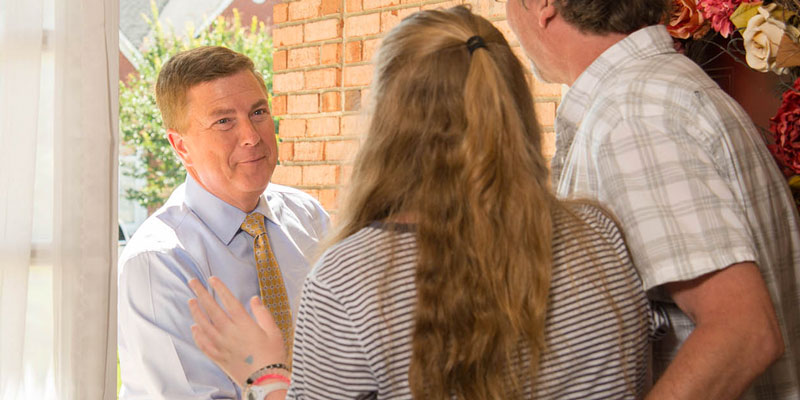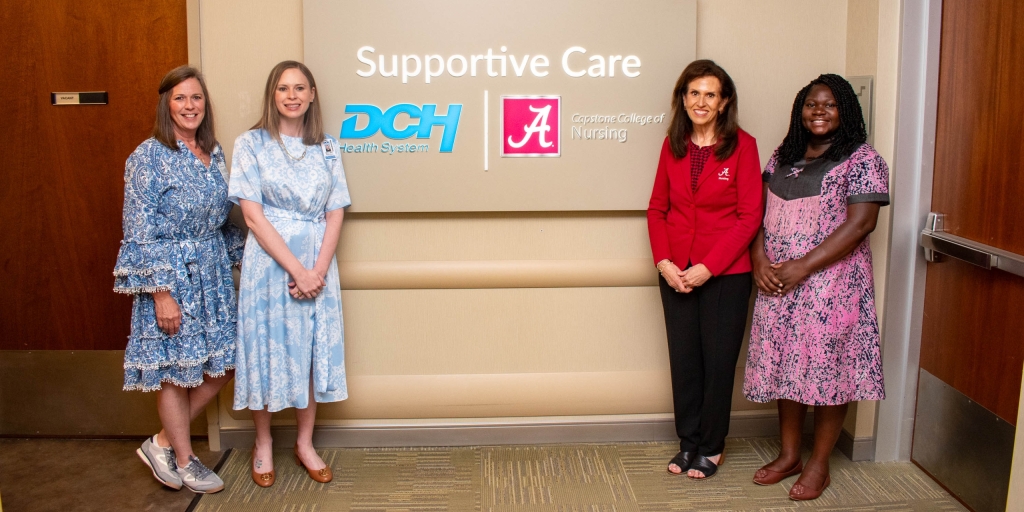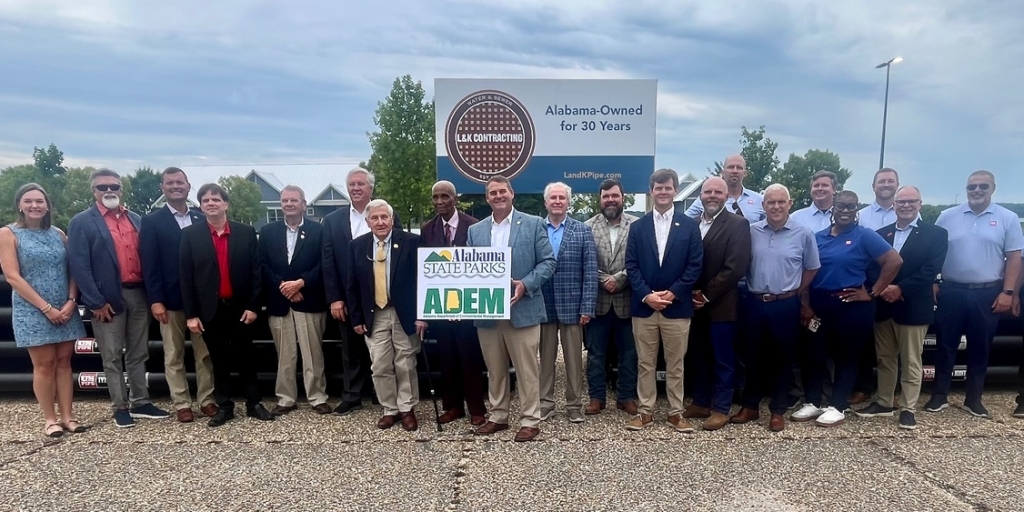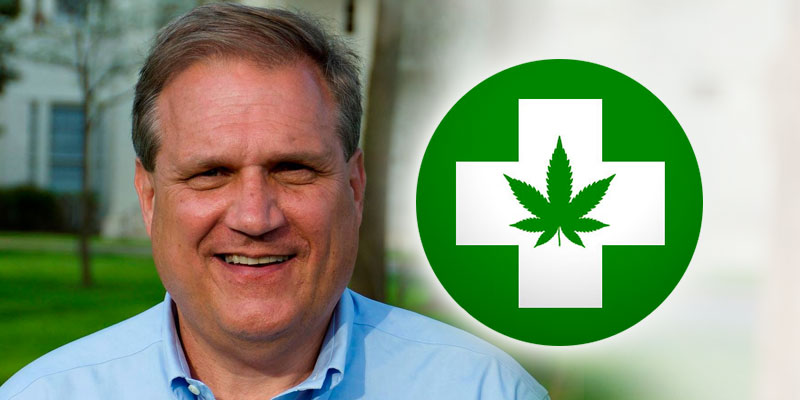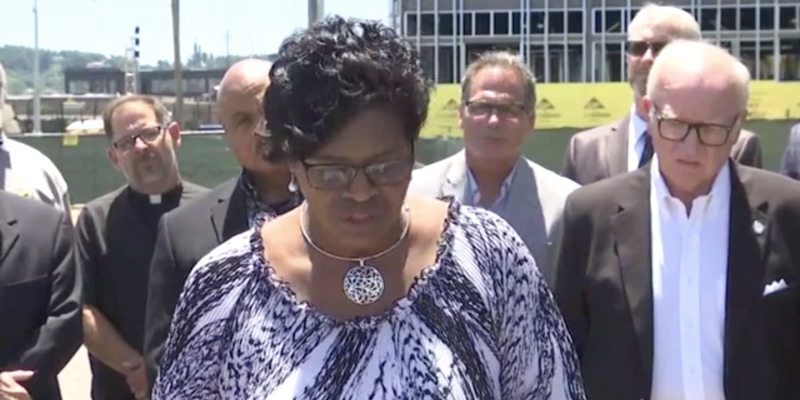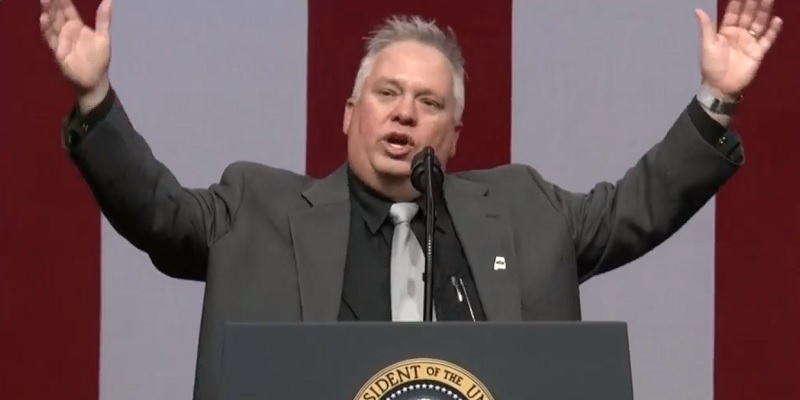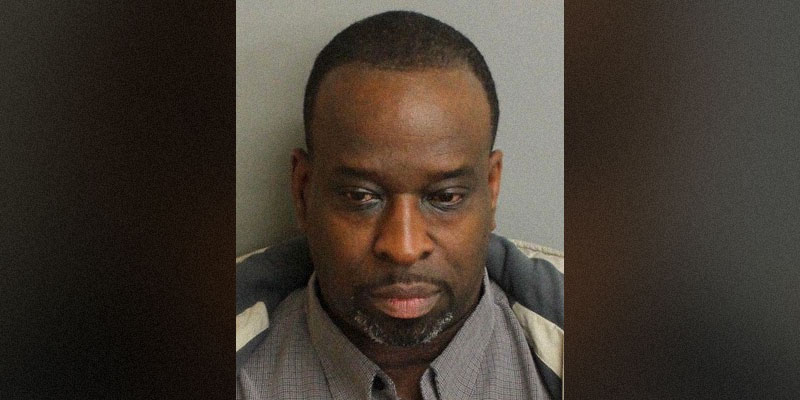Scott Dawson, a candidate for the Republican Party’s nomination for governor, recently responded to a questionnaire from the Alabama Policy Institute and Yellowhammer News. His responses are below:
POLITICAL PHILOSOPHY AND PRINCIPLES
Question: What is your political philosophy and, if elected, how would it shape the way you govern?
Dawson: I’m conservative, which means that I agree with Ronald Reagan that the nine most terrifying words in the English language are: “I’m from the government and I’m here to help.” I’m also a Christian, which means that my everyday decisions are guided by a biblical worldview—summarized by the Golden Rule, “do unto others as you would have them do unto you.” Both of these principles will drive my administration to empower individuals, families, communities, and businesses to do what they can do better than government ever will: make Alabama the best it can possibly be.
How have you demonstrated your commitment to your political philosophy?
It’s who I am and who I’ve always been. We’re not looking for perfect people, but I do believe people look for consistency in their leaders. Alabama has elected a politician as governor for the past forty years and nothing has changed. I have never held political office, and that’s exactly why I’m running. It’s time to elect a principled, conservative leader who is not beholden to the special interests, nor has any ties to our political past. For the last thirty years, I’ve served as a husband and father, as the founder and CEO of a non-profit ministry, as an evangelist, and as a regular citizen. The lessons learned throughout my lifetime have equipped me as a leader in ways that no amount of political experience ever could.
What is the most important role of the governor?
Leadership—in the fullest sense of the word. Some will say that we need a seasoned politician. Others say that we need a businessperson. I believe that we need a leader who’s willing to serve, rather than be served—a leader who will cast a vision, rally the troops, quickly analyze situations, provide solutions, build consensus, admit mistakes, delegate effectively, say “no” when it’s hard, and act decisively from the front. Alabama needs a leader to regain the people’s trust and restore faith in our future and we’re not going to get that by electing just another politician as governor.
What is the most challenging social issue facing families in Alabama? Does government have a role in helping to solve that problem, and if so, what would you propose?
A strong society is marked by strong families. Statistics and empirical examples cited by doctors, teachers, pastors, law enforcement professionals, and others will tell you that broken relationships and unhealthy home environments are a significant contributing factor to the social ills we face each day. Poverty, divorce, neglect, alcoholism, drug-abuse, violence, and crime aren’t problems that government alone can solve. We can’t be turning to government as a panacea for every social problem. I want to be sure that our churches, communities, charities, and corporations are increasingly activated and involved in the lives of Alabamians because it is vital that we work as a team to restore faith in our future.
Alabama has four abortion clinics operating across the state, and Planned Parenthood has announced plans to build a new clinic in downtown Birmingham. How do you feel about these clinics and what would you do as governor about any taxpayer funds they receive?
Abortion is one of the greatest human rights issues of this generation and reflects even deeper cultural issues that need to be addressed. It’s unconscionable that our tax dollars are employed to fund the practice of legal murder that violates the moral conscience of Alabama’s pro-life majority. I will work to defund Planned Parenthood on a state level and work with the Trump Administration to defund Planned Parenthood on a national level. I will also see to it that abortion clinics aren’t given a pass on the laws that do exist—especially when they fail to report suspected sexual abuse of a minor as they have done multiple times. I hope and pray to see the end of abortion in this state and will work to that end.
EDUCATION
PUBLIC EDUCATION
Alabama is ranked number forty-seven on U.S. News and World Report’s list of Best States for Education, and ranked number 1 in Pre-Kindergarten quality. As far as public education reforms, there have been many suggestions for improvement including increased investment in STEM education, distance learning, and reforming teacher tenure. What reforms would you propose or support to improve public education and prepare Alabama’s children for school success and lifelong learning?
Last year, President Trump signed an Executive Order giving the Department of Education liberty to begin reversing harmful Obama-era education policies and give more power back to states, locals, and parents. The Trump Administration understands what we all know to be true: parents, local schools and teachers know what’s best for our kids. We certainly don’t need any more cookie-cutter education plans like Common Core coming from politicians in Washington, D.C. or San Francisco. 1. I want to see Alabama standards and curricula modeled from the best programs in the nation by the best teachers in the state—we’ve got to let our teachers teach the basics with excellence. 2. I will work to implement mentorship programs that unite the generations for mutual benefits. 3. I want to initiate leadership training for middle school students—character, economics, work ethic, and attitude. 4. We all talk about getting drugs out of our schools. I have plan to work alongside parents and schools to partner with private entities and faith-based rehab programs to require drug testing of any kids who participate in an extracurricular activity in order to allow them to get the help that they need. 5. I want to see vocational schools thriving again. Today, experienced welders, machinists, and mechanics are being paid two and three times more than the average graduate coming out of college and we need skilled workers who are prepared to take on a trade throughout this state. College isn’t a must for everyone anymore.
Ultimately, I want to empower parents, private and faith-based schools, teachers and local systems to do what they do best. With sound guidelines, less bureaucracy, and more freedom, I believe that Alabama can top the nation in education.
ALABAMA STATE BOARD OF EDUCATION
Dr. Eric Mackey was recently named Alabama’s next State Superintendent of Education. The governor serves as a voting member of the Alabama State Board of Education. What vision for Alabama do you share with the new superintendent and where do your philosophies differ? How will you prioritize Alabama’s school children in your role on the Board?
The Governor of Alabama is a voting member of the school board and also serves as President of the Board. I’m not a politician, so I’ll actually attend the meetings—even the ones that aren’t during an election year. I’ll also work hard to be sure that our children and their futures are the primary focus; we’ll look at facts and studies—not dollar signs, and we’ll listen to parents and teachers—not bureaucrats. I believe that a successful State Board of Education will eventually work itself out of a job by effectively dishing out decision-making power to local boards, teachers, and parents. I look forward to working with Dr. Eric Mackey to see Alabama’s children succeed.
SCHOOL SAFETY
The recent school shooting in Parkland, Florida reignited the discussion about school safety. President Trump has suggested arming teachers while others have argued for increased use of school resource officers and funding for mental health programs. As governor, how would you ensure the safety of Alabama’s children in public schools?
I’ll start by disbanding Kay Ivey’s task force and replacing it with decisive action. I don’t want another child to die because of a school shooting before we’ve done everything we could to prevent it. Seventeen other states have laws allowing school personnel to arm themselves and I’ll encourage similar legislation with five parameters: 1. It must be voluntary. 2. Extensive training will be required. 3. Local law enforcement will be involved with coordination at the schools. 4. A background check for mental health issues will be performed and verified. 5. School personnel who volunteer for the program will receive a stipend for their extra effort.
SCHOOL CHOICE
In 2015, Alabama became the 43rd state to approve legislation to authorize charter schools. Many states now allow parents to transfer their child from a failing public school to a non-failing public school, to utilize education savings accounts or school vouchers, or to send students to alternative schools using tax-credit scholarships, allowing parents greater control in their child’s educational endeavors. How should school choice fit into Alabama’s education system?
We all believe that our kids are the best kids, that their teachers are the best teachers, and our kids’ schools are the best schools—and while there’s some truth to all of that, the fact is that education in Alabama is at the bottom. We all have to face the reality, stop settling for being at the bottom, acknowledge that pouring additional millions into the Education Trust Fund won’t ultimately solve our problems, and be willing to try new ideas that will launch us towards the top. School choice should be a priority for all of us because it’s exactly what we all talk about: giving more choices back to parents, who also happen to be taxpayers. I’m open to all of the ideas—private schools, Christian schools, charter schools, and home schools, through school vouchers, tax credits, and education savings accounts—as long as we require the highest standards of financial accountability and respect the rights of parents to make educational decisions for their children.
FISCAL RESPONSIBILITY
TAX CODE
In Alabama, the bottom 20% of earners pay 10% of their income in state and local taxes while the top 1% only pays 3.8% of their income in the same taxes. If elected, what would be the future of the state income tax and do you see this disparity as a problem?
Just in the last few months, we have watched company after company after company give bonuses or pay raises to employees as a result of the Republican tax reforms passed by Congress. This is tangible and exciting evidence of what conservative tax reform is all about. While I’ll encourage reform of any kind, I can’t help but be honest about the broader situation: we’ve amended and re-amended our tax structure year after year when we could start with a clean slate and create a simpler, fairer model with a streamlined process that makes Tax Day better for all Alabamians—not just tax-and-spend Democrats. I would support a flat tax or the Fair Tax. Both proposals are better than the confusion that we have now and both would make tax season less of a headache for all of us who spend countless hours and incalculable dollars on tax preparation each year.
STATE AND LOCAL TAXES
According to the Institute for Taxation and Economic Policy, Alabama boasts the 12th most regressive state and local tax system in the nation. One contributor to this ranking is our combined 9% grocery tax (only four states tax groceries more than Alabama). In 2017, Governor Bentley proposed decreasing the grocery tax by 4%. If you are elected, would you suggest changes to the grocery tax?
Decreasing the grocery tax is a tax cut for everyone and who wouldn’t support that? That said, it’s important for all of us to understand that a tax cut means a cut to the state’s budget, which many grocery tax supporters believe needs even more money. Under our current tax structure, I would support a gradual grocery tax decrease in those years when the natural growth of the Education Trust Fund would make the cut hardly noticeable. And as soon as the legislature works to unearmark our revenue, budget responsibly, cut unnecessary allocations, and fund necessities, I’ll support any and all tax cuts to give more money back to hard-working Alabamians.
INFRASTRUCTURE INVESTMENT
US News ranks Alabama’s roads and bridges as the 16th and 21st best in the country, respectively. Even so, every neighbor of ours—except Mississippi—has roads and bridges that rank in the top 10. Alabama also ranks 45th in terms of broadband access. If elected, what would you prioritize as the most important infrastructure investment projects, and what innovative options would you propose to fund such projects?
Based on our national rankings, our roads and bridges are doing okay compared to education or transparency—where we’re in the bottom forty. That said, we all know that I-65 is terrible, I-10 needs expansion because beach tourism brings millions of dollars of revenue which benefit the entire state, and I-565 will face significant traffic increases with the coming of Mazda-Toyota. And don’t get me started on the county roads I’ve been travelling every day.
I’ve heard several pandering politicians in this race who promise improvement on whichever roads are travelled by the group being addressed that day. I’m sitting there shocked, thinking: We have a road plan in Alabama already, groundwork is happening for future projects, and work is getting done on current projects. A politician on the trail can’t just change up the priorities by the minute. Some projects have been on this plan for decades. I will do three things when I get to Montgomery: 1) make sure that we are prioritizing road projects fairly, 2) free up project funds by pushing for responsible budgeting, and 3) make sure that we’re hiring the workers who can get the projects finished with speed and efficiency.
STATE-RUN LOTTERY
Most states resort to installing a state-run lottery to increase revenue and pay for government projects. Do you support a lottery to solve the state’s fiscal woes? Why or why not?
The lottery is just another illustration of how Democrats keep us in the past while funneling more money into Montgomery—which we don’t need. As an evangelist I counseled students to be good stewards of their money. As governor, it’ll be my job to be a good steward of Alabama’s money. Lottery math simply doesn’t add up. That’s why today, there are states, like Illinois, that can’t even afford to pay its winners. Misguided fantasies only suck real wealth out of the economy and take money from those who need it most. The results are an increase in welfare recipients and higher taxes on the rest of us. While there will be a very small number of folks who actually win big prizes, the true jackpot winners will be the bureaucrats in Montgomery who will promise big results to get their hands on more money. I want to bank Alabama’s future on solid solutions where everyone can win—not a game of chance.
THE RIGHT TO WORK
JOB CREATION
The Census Bureau suggests that Georgia, Florida, and Tennessee are creating more jobs than Alabama. As governor, how would you foster job creation that rivals our neighbors to the north, east, and south?
I can’t wait to sit down in a conference room, pull the experts together, group counties together, and recruit industry to every corner of our state. That said, we all have to remember that when we bring in a company from out-of-state, the incentives that we utilize to draw them are based on giving away free taxes. The takeaway is that we can do all of the recruiting that we want, but if we’re not making Alabama a sweet home for the businesses or would-be entrepreneurs that are already here—which pay Alabama taxes—we aren’t being financially responsible! I’m a conservative who knows that free market capitalism works. A Dawson administration won’t be picking economic winners and losers behind closed doors. Instead, government will operate at a minimum, businesses will compete on fair playing fields, and job creation will skyrocket all across the state!
ROLE OF LABOR
Alabama is a right-to-work state. In your opinion, what is the proper role of organized labor and should Alabama remain a right-to-work state?
I support the fact that in Alabama, everyone has a right to work—with or without a labor union affiliation. Labor unions often become bureaucratic organizations that hold a monopoly over a certain trade. Even though it may seem like a safe space for those within the union, those who aren’t allowed inside or who are laid off face a disadvantage in the real world. Alabama’s right-to-work amendment approved back in 2016 protects the ability of every Alabamian to get the job they’re trained to do, regardless of their affiliation with a labor union.
OCCUPATIONAL LICENSING IN ALABAMA
The state of Alabama licenses 151 different occupations and over 20% of Alabama workers need a license to work. If elected, how would address these regulations—regulations that both the Obama and Trump administrations have regarded as problematic?
No one starts a business for the purpose of hiring an accountant and a lawyer, or to add a government oversight agency to the speed dial. In Alabama, I don’t hear complaints about taxes as much as I hear about onerous regulations, occupational licensing fees, and ever-changing bureaucratic requirements that are nickel-and-diming our businesses away, creating too much paperwork, and causing unneeded stress. In fact, the Institute for Justice found that Alabama is ranked 47th in the nation in terms of having the most burdensome licensing laws and it doesn’t take much digging to find that we’re regulating entrepreneurs and business owners to death—across the board—and inconsistently.
I’m proposing a Cut the Tape Initiative. We will establish an independent council to vet boards, agencies, regulations, and statutes. Business owners can freely bring complaints about fees, regulations, statutes, or inconsistencies that stymie their productivity to the council. The council will then work with the board or agency in question, the Legislative Council, the legislature itself, and the Office of the Governor to roll back all that’s unnecessary.
CRIMINAL JUSTICE
OPIOID EPIDEMIC
According to the CDC, Alabama is the state highest-prescribed with opioids, with more prescriptions than people. Opioids are the main driver of overdose deaths and, in 2016, 756 Alabamians died from drug overdoses. As governor, how would you tackle Alabama’s share of this national crisis?
The opioid crisis breaks my heart. The death and destruction left in its wake doesn’t discriminate, it impacts absolutely everyone. There’s no one-paragraph solution; it’s going to take a comprehensive approach where everyone—communities, parents, churches, schools, businesses, charities, and even government agencies—carries their part of the burden. 1) Everyone needs a reason to live, the confidence that they can overcome, and hope for the future. I want everyone pulling together to provide that. 2) Just a few days ago, Walmart self-imposed prescription limitations on opioids. All physicians ought to be limited in the prescriptions that they write and we need medical guidelines for the treatment of chronic pain. 3) I believe that the implementation of mandatory drug testing for students involved in extracurricular activities will help to prevent drug addiction early on and get kids the help that they want and need. 4) I want more education about the dangers of opioids, the reversal power of Nalaxone, and drug rehab organizations like Teen Challenge that exist to help.
CRIME PREVENTION
Alabama has the third highest murder rate in the country. As governor, how would you address crime and what policies, specifically, would you propose?
The lives lost or impacted by violent crime in Alabama aren’t just a statistic; each and every one is a valuable human life. From a state resources standpoint, it’s incumbent upon the next governor to work closely with state law enforcement and the state’s judiciary to make sure that they are equipped with the tools that they need to enforce our laws, bring swift justice to criminals, and always prioritize the safety of the people of Alabama. I’ll also go back to an earlier question where I addressed the problems we face in our society from the breakdown of families and the lack of regard we hold for each other as fellow citizens. That kind of regard to essentially “love one another as you love yourself” has to be instructed at an early age—and reinforced often.
PRISON REFORMS
Alabama has received national attention for the state of its prisons and a federal judge recently called inmate care “horrendously inadequate”. How would you address this issue, and do you support the use of private prisons?
As somebody who was raised in the streets of Ensley, I can tell you that there isn’t a mother in Alabama praying we build a bigger, more expensive prison for her child. She’s praying, “Lord, you better get ahold of him or her, ‘cause I can’t do anything with them.”
I understand that some of our prisons have deteriorated with age. We have deteriorated schools too (and houses for that matter). It happens. I also understand that with new and improved prisons, we may see some cost savings and I also understand that Alabama must comply with court orders to ensure necessary inmate care. I also know that we have unused state properties that could be converted. The Department of Corrections itself is an old Montgomery hospital! One thing that I won’t support is a mega-prison proposal that will not even solve the overcrowding problem and would cost taxpayers over a billion dollars. We can build the largest prisons on earth and talk about consolidating resources, but if we don’t work to eradicate the source of our problems, those facilities will be overcrowded and deteriorated soon enough.
We’re supposed to be running correctional facilities, not generational facilities. I’m proposing increased partnerships with the faith-based community, non-profits, and vocational schools and colleges to bring back structure to the daily lives of our prisoners through instructive educational programs, release and diversion programs, and effective treatment programs for drug offenders. While there is a cost to sin and crime that we must bear, I hope that for every dollar that goes into construction, we will spend an equal amount to give prisoners hope beyond the bars and reduce recidivism.
CIVIL ASSET FORFEITURE
Some states are eliminating provisions that allow police to seize property without securing a criminal conviction. Do you support the use of civil asset forfeiture by law enforcement and the provision that allows agencies to keep the proceeds of seized property? Why or why not?
Civil asset forfeiture is a tool used by law enforcement to fight crime, but it is also an issue that goes to the heart of our Fourth Amendment which protects us from unreasonable searches and seizures and gives all of us the right to due process. Current civil asset forfeiture law needs reform.
I believe that basic transparency and accountability are prerequisites to considering additional reforms and I’d like to see Alabama following the lead of 37 other states to enact stricter reporting requirements—answering questions like: How were the assets seized? What was the assumed violation or crime? Was there a later conviction in the case? How were the assets used by the agency? This data should be published in a timely manner for optimum transparency and accountability.
I believe that with proper reforms to the practice of civil asset forfeiture we can ensure that the constitutional rights of Alabamians are protected and that law enforcement officers who put their lives on the line everyday are given the tools that they need to keep all of us safe.




